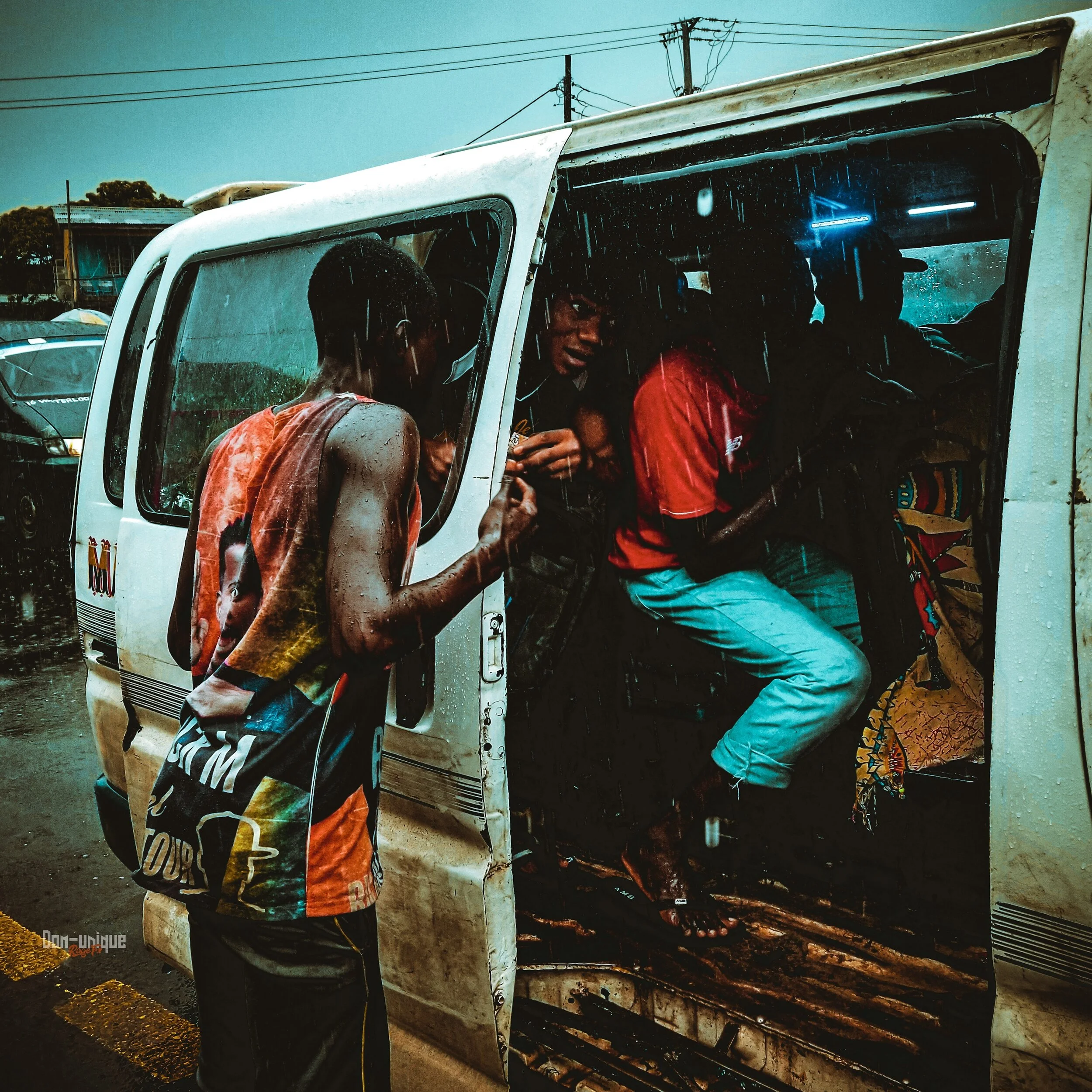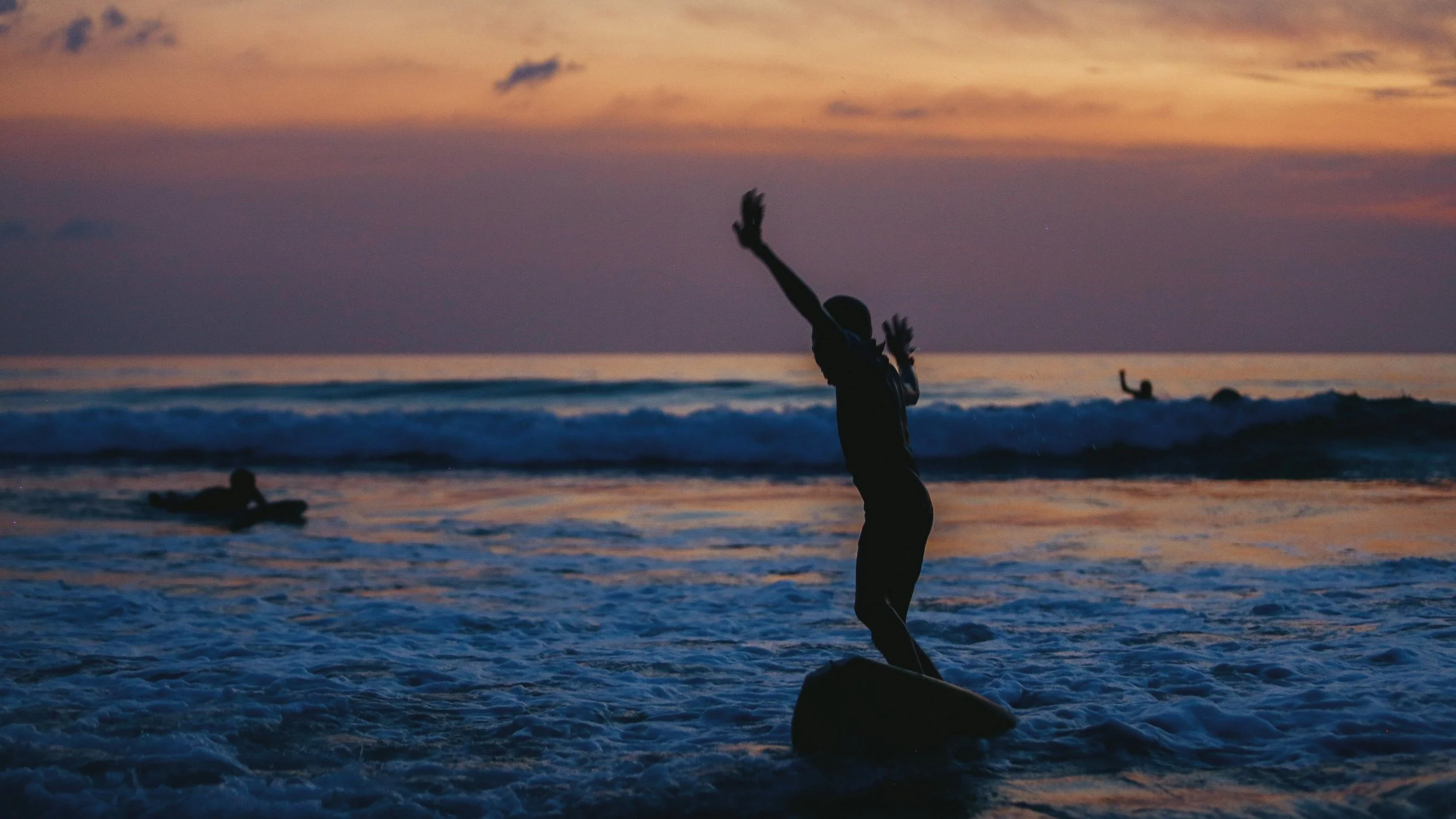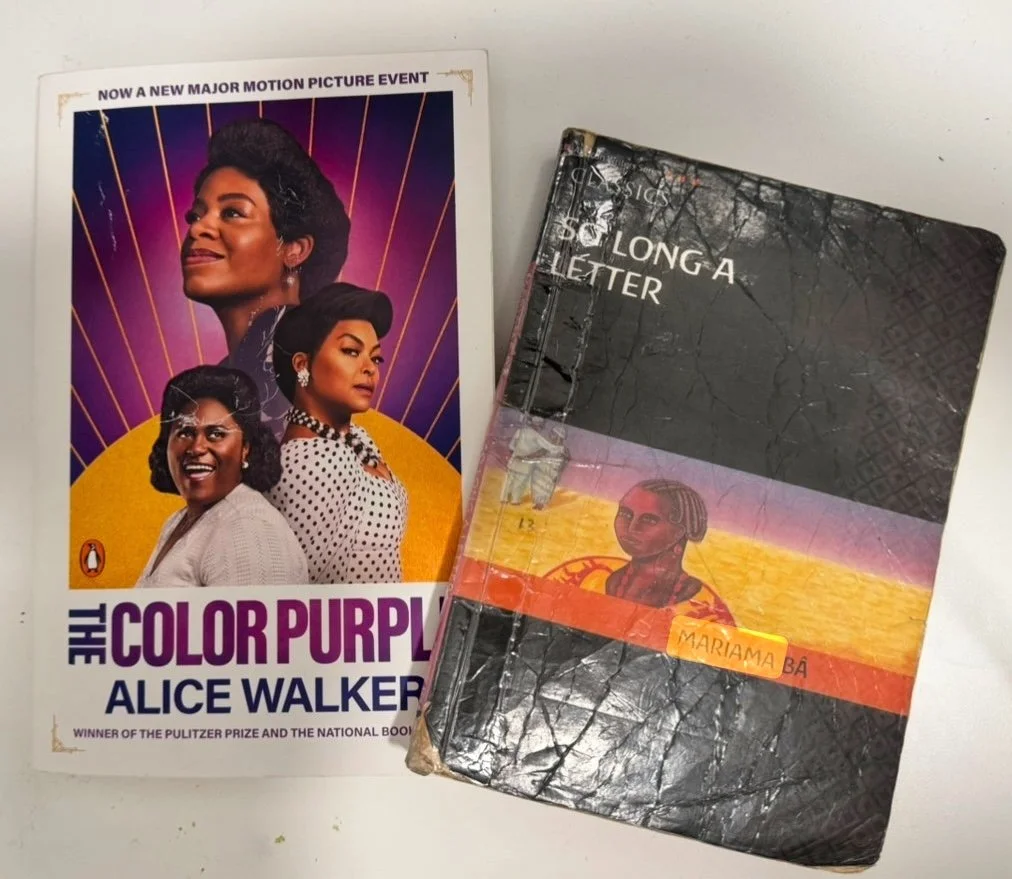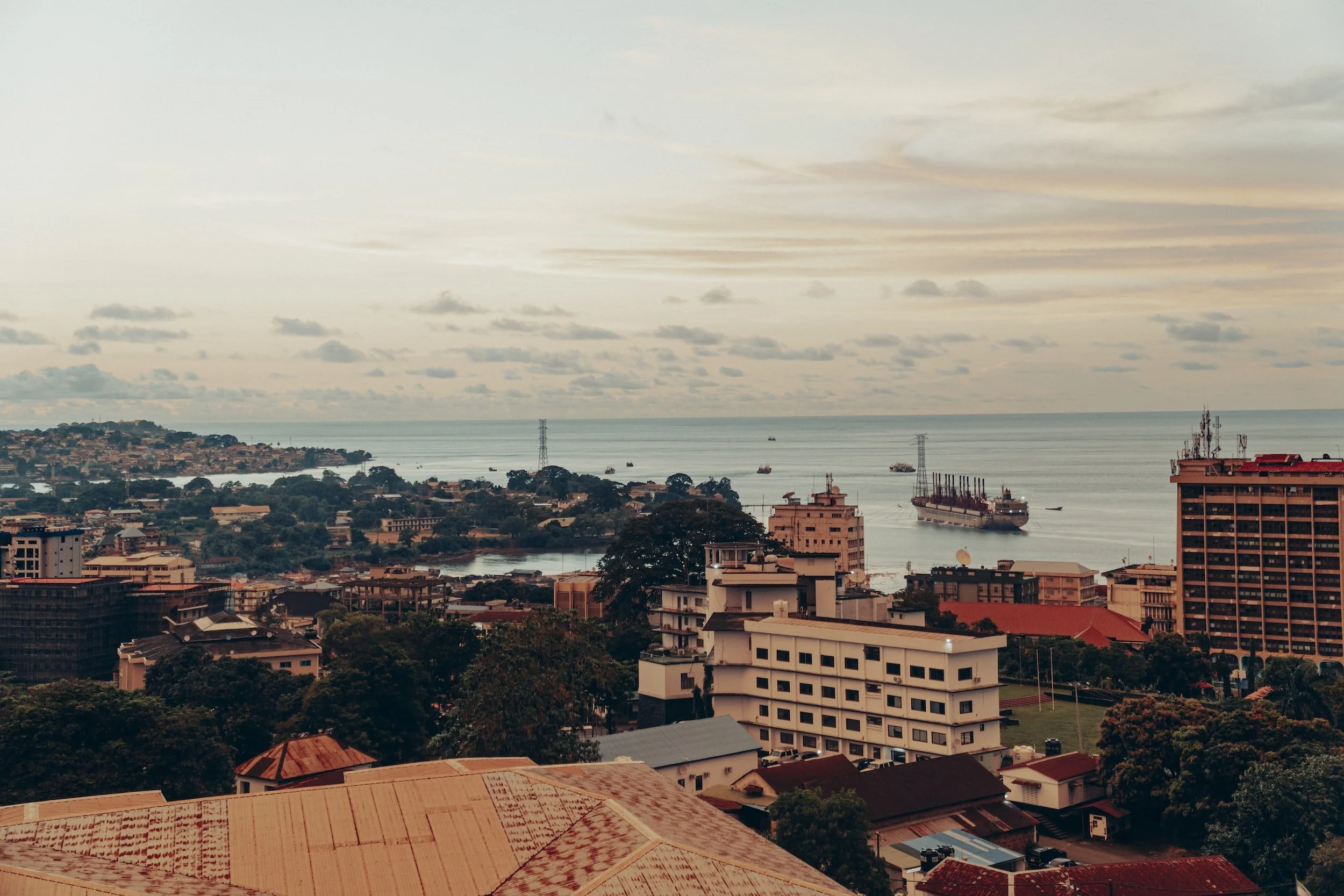
Chasing Freedom
Photo Credits: Sama Kai
By Bassie Bondeva Turay
In February 2023, I left Sierra Leone for a youth leadership program in the United States with a colleague, a young woman with whom I’d formed a bond learning Temne. Three weeks later, I was on my own on our return flight to Freetown. The young woman, who had only just started college in Sierra Leone, absconded from the program in our second week to remain in the United States. I know it wasn’t an easy decision for her to make, to be undocumented in a country that is alien to her. During our trip, she shared personal stories of hurt and struggle growing up in rural Sierra Leone in a single-parent household. Hers was a life of many challenges, and she felt that America would free her from them.
I have resisted the urge to pass harsh judgment on her because I recognize my own privileges which have protected me from taking such a path. I grew up in Freetown where I attended private schools, studied abroad, and have been opportune to navigate influential spaces. But I’ve learnt that even in those circles with young people who have access to power and affluence, their motivation is also to chase freedom elsewhere. Sometimes I wonder that if everyone is so bent on leaving Sierra Leone, why am I fixated on experiencing life in all its ‘glory’ here?
Last year, when I told a friend that I was returning home after completing my graduate studies abroad, he asked, "What are you going to do there?". He was concerned. I may have well told him that I’d packed my bags for hell. But it moved me to unpack the question. It caused me great apprehension to realise that for the first time in almost a decade, I would live in Sierra Leone, and not just engage with it on social media or as a December holidaymaker, yet within myself I could not find an answer to my friend’s question. Nonetheless, I returned and what I have noticed in my few months at home is not so different from what I felt while I was away. The fact remains that the future is gloomy for our country, that many of our citizens, particularly our youth, are unhappy. It seems to me that the country is on auto-pilot mode, amid a divisive political climate, worsening economic conditions, and fractured social cohesion.
I sense fear from different sides of our society, our government sees dissent as dangerous because of political pundits who present inflammatory speech to the public. On the other hand, opposition leaders are wary of a government that they believe is removed from the reality of mass hunger and other dissatisfactions. These fears are not new, they are primal. They would be the same whether you switched the roles that the green or the red currently hold. It is the outcome of years of simmering suspicion in the ways that different actors in our ethno-regional system have misgoverned the country. These fears are worsened by rife misinformation on social media, feeding flames of distrust. This may have been a factor in the August 10th incident in 2022, or maybe there’s just something in the water in Sierra Leone. Whatever you believe the cause of that day was, our parents understand. For them, it is a mirror of the past. Following a long period of misrule, young people were left in such misery that it was easy for them to band together in a ragtag way and inflict mayhem on their communities. But the majority of today's young people have no recollection of the events that led us to this precarious situation and are trapped in a mire.
Young Sierra Leoneans are particularly vulnerable, lagging behind our global counterparts, and far from receiving the quality of life we deserve. Of course, this is not something that is only just happening now. Under the previous regime, The Guardian named Sierra Leone “the most dangerous place in the world to be a young person”, citing WHO data. Frankly not much has changed; access to quality education and healthcare remains poor, substance abuse is rife - young men nodding off in the streets is now commonplace, jobs are still scarce, and every young person dreams of a Canadian, American, or British passport. I won’t say which one I prefer but it is this frustration that influences young Sierra Leoneans to fight or fly.
During my undergraduate years at the University of Rochester, we had a strong mental health program with a catchphrase that could be seen on posters in practically every dorm, hallway, or classroom: DON'T IGNORE THE SIGNS. It was meant to inform students to pay attention to any unusual changes in the behaviour or appearance of their colleagues. The signs were often precursors of an underlying problem. It was wise for us to take note of them so we could nip a looming disaster in the bud. I am aware of the ‘signs’ in Sierra Leone today, which is why I have written this essay. I am no prophet of doom.
I am aware of a revolutionary surge of young Sierra Leoneans making an impact in their communities, and across sectors, from politics and business to the creative arts and academia. I work closely with adolescents at my local church and my alma mater. My interactions with these young minds have revealed a genuine love for our country, an enthusiasm for change, and a desire to live a good life here.
There is something in the water here, and young Sierra Leoneans should positively ride the wave. I firmly believe that what we need in Sierra Leone is collective action, a movement that completely disrupts the status quo that is divisively ethno-regional, classist, and patriarchal. And if any of us has half the hope that a youthquake will occur here, we must search within to figure out what our role is. Assuming your role requires a great deal of self-discipline and character development; you must first lead yourself exemplarily before enabling others.
Philippians 2:4 instructs us to “consider not only our own interests but also the interests of others”. While 1 Peter 4:10 admonishes us to “use the abilities that God has given us to serve others”. Young Sierra Leoneans must start moving curiously towards collaboration, rather than working in silos to create more meaningful and inclusive environments for their target audience. Let’s seek out those who share our passions and interests and begin to talk about starting some ideas together. Ultimately, a culture of collaborative action based on our shared priorities would develop into the foundation for the socio-political change we need. Our deliberate alliances, which are effective in resolving the challenges we face across sectors, will result in a formidable force that will eventually grow into a radically progressive and inclusive movement at all levels in Sierra Leone.
On the occasion of my undergraduate graduation, a Sierra Leonean woman,who is a role model to me, sent a note that has since had a profound impact on me. She hoped that my path would lead back to Sierra Leone. I began passing on this wish to other young people who have the potential to positively influence Sierra Leone but are unsure how to take on that responsibility and would rather just disconnect. So, when I finally accepted the Sierra Leonean sister's departure from our leadership program in the U.S., I did what I knew best. I prayed for her safety and hoped that whatever path she takes, it would bring her back to Sierra Leone.
Bassie Bondeva Turay is deeply committed to youth empowerment, education, and leadership development. He is a BCA Leadership Fellow and a Management Consultant for CTI Consulting Ltd. Bassie is also a Children's Sunday School instructor and Youth Adviser at the Bishop Baughman Memorial United Methodist Church, as well as a teacher of Government and History at the Sierra Leone Grammar School.
Photo Credits: Sama Kai
Freetown's Dreamers
Unu mek wi shek smɔl. Di poda poda de fɔs i tayt.
1787 was the year emancipated slaves arrived in the Province of Freedom, later named Freetown. They came to a land that promised to bring their dreams of freedom and ownership to fruition. A century later, Africans from all over the continent came to fulfill their dreams by pursuing an education at Freetown’s Fourah Bay College, nicknamed the Athens of West Africa; Merchants also arrived at Freetown’s shores with dreams of becoming wealthier. Years later, the city has evolved into a smorgasbord of cultures, and is still home to dream chasers.
Legendary Sierra Leonean Musician and political commentator, Daddy Saj, circa 2006 declared his dream on the song ‘Sorriest Part’. Saj envisioned a Sierra Leone where the basic amenities are available to every citizen; a country that caters for its citizens; a state that upholds the rule of law. But almost two decades after releasing ‘Sorriest Part’, this vision remains a figment of a creative mind. Walking through the streets of Freetown, one realizes that Saj may never see his dream come true, but his vision is reimagined and pursued by young Sierra Leonean creators.
Aprɛntis a beg tɛl yu drayva se if i nɔ ple Salon myuzik, wi nɔ de go.
In his debut offering, Game Time, Prodigy Sim uses his exceptional storytelling to share his version of events on ‘The City’ while airing the life and perils of many creators in Freetown. The toils of getting an education (or a backup plan) while pursuing your passion or ideas
"So ar begin write
A few lines down every night
Even though exams was in sight"
And the possibility of making it big weighing against the loneliness experienced by the dream chasers
"In the city where anything can happen
Where you're left alone like a bachelor"
Prodigy Sim, via the same song, shares his dream of being self-employed, an entrepreneur. Honestly, it is a dream many creators share but only few attain for a plethora of reasons, and fear of failure tops this list; the irony right?
"Scared to fail now my biggest - FEAR
Scared to chase my dreams cause I - FEAR"
Freetown remains a symbol of hope. However, its streets are littered with dreams shackled by fear. It may be the fear of failure, inconvenience etc. In his project, Land of Magic, Kadrick dedicates a track to exploring fear. He illuminates his doubts, angst and the uneasiness that comes with being a Sierra Leonean creator.
“I swear sometimes I wonder if
A world where dreams come true can really exist
I can't even ponder it”
Being a creator in an underdeveloped country means lack of tools, limited access to mediums or platforms to share your ideas, limited opportunities for remuneration and other hurdles that come with underdevelopment. These realities have hindered some, but they have also inspired others to create phenomenal art.
“This is for the dreamers with insomnia”
The paradox of pursuing dreams is sleepless nights. In his debut project, If I'm Allowed to Dream, Jjoe Saymah raps of the allure of being a rapper while illustrating the castigation that many young creators in Freetown have to live with. Saymah knows these hurdles too well; from his parents’ desire of him getting a white-collar job, to the depression that often comes with creating.
“Imma put in the work
Dey hustle lek two four seven
Get too much potential for lef untapped"
Freetown is filled with potential; potential hit makers, potential legends, and potential entrepreneurs. But, in a system that does not cater for creators, the lagoon of potential is where most creators languish. Jjoe recognizes this and declares his intention of not remaining untapped; he also challenges other creators to “put in the work”.
Centuries after the first emancipated slaves arrived, the dream may have evolved, but it is still driven by the desire for ownership and to live a better life. To achieve this dream the onus rests upon creators to remain consistent in excellence and build structures that foster ingenuity and longevity.
Long Live the Dream Chasers.
Drayva as yu tek di kɔv, lɛf mi na da jɔnkshɔn.
Marco Koroma is a freelance writer and content creator based in Freetown. He blogs regularly at afrikandude.wordpress.com . He is also the Co-Creator and Curator of Tok U Tok , an open mic and live music event in Freetown.









